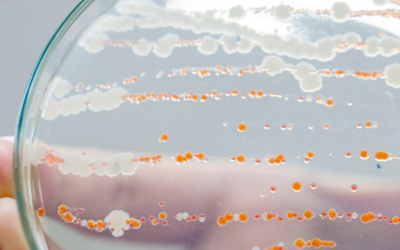What is a Microbiome and Why Do They Matter?
In recent years, the term "microbiome" has surged into the spotlight, captivating the interest of scientists, healthcare professionals, and the general public alike. But what exactly is a microbiome, and why is it so important? This article delves into the fascinating world of microbiomes and explores their profound impact on our health, environment, and overall understanding of life.
Understanding Microbiomes
A microbiome is a community of microorganisms—such as bacteria, viruses, fungi, and protozoa—that inhabit a particular environment. These microbial communities can be found in virtually every habitat on Earth, from the soil in your garden to the depths of the oceans, and even within the human body. The human microbiome, for example, includes the diverse populations of microbes residing in our gut, skin, mouth, and other body parts.
The Human Microbiome: Our Invisible Allies
The human body is home to trillions of microorganisms, collectively known as the human microbiome. These microscopic organisms play an essential role in maintaining our health and well-being. Here are some of the key functions they perform:
- Digestive Health: Gut microbiota help break down complex carbohydrates, synthesize vitamins, and regulate digestion. They produce short-chain fatty acids that nourish the cells lining our gut and contribute to a healthy digestive system.
- Immune System Support: Microbiomes help train the immune system to recognize and fight harmful pathogens while tolerating beneficial microbes. A balanced microbiome is crucial for preventing autoimmune diseases and allergies.
- Mental Health: Emerging research suggests a strong connection between the gut microbiome and the brain, often referred to as the "gut-brain axis." Gut bacteria produce neurotransmitters like serotonin, influencing mood, stress levels, and overall mental health.
- Protection Against Pathogens: Beneficial microbes outcompete harmful ones, reducing the risk of infections and diseases. They form a protective barrier on our skin and mucous membranes, preventing pathogen colonization.
Environmental Microbiomes: Guardians of the Ecosystem
Microbiomes are not limited to the human body; they are integral to environmental health and sustainability. Here’s how environmental microbiomes contribute to the planet:
- Soil Fertility: Soil microbiomes decompose organic matter, recycle nutrients, and promote plant growth. They help maintain soil structure and fertility, supporting sustainable agriculture and food production.
- Water Purification: Aquatic microbiomes play a vital role in breaking down pollutants and organic matter in water bodies. They help maintain clean water and support aquatic life.
- Climate Regulation: Microbes in soil and oceans participate in the carbon and nitrogen cycles, influencing greenhouse gas levels and climate patterns. They help sequester carbon and mitigate the effects of climate change.
- Bioremediation: Certain microbes can degrade environmental pollutants, such as oil spills and toxic chemicals. This process, known as bioremediation, is a powerful tool for cleaning up contaminated environments.
The Future of Microbiome Research
The study of microbiomes is a rapidly evolving field, with new discoveries constantly reshaping our understanding of these complex communities. Advances in DNA sequencing and bioinformatics have enabled scientists to explore microbiomes in unprecedented detail, revealing their vast diversity and intricate interactions.
Why Microbiomes Matter
The importance of microbiomes cannot be overstated. They are essential for the health and functioning of all ecosystems, including our bodies. By understanding and harnessing the power of microbiomes, we can develop innovative solutions to some of the most pressing challenges in medicine, agriculture, and environmental conservation.
- Personalized Medicine: Microbiome research is paving the way for personalized medical treatments based on an individual's unique microbial makeup. This approach could lead to more effective therapies for conditions like inflammatory bowel disease, obesity, and mental health disorders.
- Sustainable Agriculture: Enhancing soil microbiomes can improve crop yields and reduce the need for chemical fertilizers and pesticides. This promotes sustainable farming practices and food security.
- Environmental Restoration: Leveraging microbial communities for bioremediation can help restore polluted environments, protecting biodiversity and ecosystem health.
Conclusion
Microbiomes are fundamental to life on Earth, influencing everything from human health to environmental sustainability. As research continues to uncover the mysteries of these microscopic communities, their significance becomes increasingly clear. By embracing the power of microbiomes, we have the potential to transform health, protect the environment, and ensure a sustainable future for generations to come.
